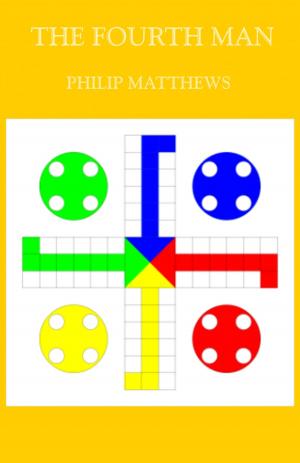| Author: | Philip Matthews | ISBN: | 9781311401595 |
| Publisher: | Philip Matthews | Publication: | January 25, 2014 |
| Imprint: | Smashwords Edition | Language: | English |
| Author: | Philip Matthews |
| ISBN: | 9781311401595 |
| Publisher: | Philip Matthews |
| Publication: | January 25, 2014 |
| Imprint: | Smashwords Edition |
| Language: | English |
The novel is about the sentimental education of an Irish writer, Richard Butler. Given the limited possibilities of the biographical novel, the experiences of Butler are conveyed by means of sixteen episodes that concentrate on the key incidents in his life between child-hood and his early-thirties. These sixteen episodes are arranged in four sections of four episodes each. The sections are not titled but they concern, in turn, the family, the group, the social, and the individual, the final section indicating the meaning of the title of the work: the moral imperative that we achieve (what can best be called for now) individuality.
THE FOURTH MAN is an attempt to achieve a sense on one hand of the fragmentary nature of modern life, the experience of disconnection and decentred-ness, yet on the other hand, the intense aura of significance that accompanies certain key experiences in this alienated life, and how by reflection on these intense moments some sense can be made of our lives by tracing the implicit connections between these moments.
A number of narrative techniques have been used to achieve this end, ranging from first and third person narration, variable focus on Butler, rhetorical devices like figuration, reinforcement and connotation, and a variety of settings in Ireland, England and Europe. It is hoped that THE FOURTH MAN succeeds in conveying the early life of Richard Butler in a convincing way, and that it also provides for the reader an example of how we ought to interpret the moments of illumination that occur in all our lives.
The novel is about the sentimental education of an Irish writer, Richard Butler. Given the limited possibilities of the biographical novel, the experiences of Butler are conveyed by means of sixteen episodes that concentrate on the key incidents in his life between child-hood and his early-thirties. These sixteen episodes are arranged in four sections of four episodes each. The sections are not titled but they concern, in turn, the family, the group, the social, and the individual, the final section indicating the meaning of the title of the work: the moral imperative that we achieve (what can best be called for now) individuality.
THE FOURTH MAN is an attempt to achieve a sense on one hand of the fragmentary nature of modern life, the experience of disconnection and decentred-ness, yet on the other hand, the intense aura of significance that accompanies certain key experiences in this alienated life, and how by reflection on these intense moments some sense can be made of our lives by tracing the implicit connections between these moments.
A number of narrative techniques have been used to achieve this end, ranging from first and third person narration, variable focus on Butler, rhetorical devices like figuration, reinforcement and connotation, and a variety of settings in Ireland, England and Europe. It is hoped that THE FOURTH MAN succeeds in conveying the early life of Richard Butler in a convincing way, and that it also provides for the reader an example of how we ought to interpret the moments of illumination that occur in all our lives.















